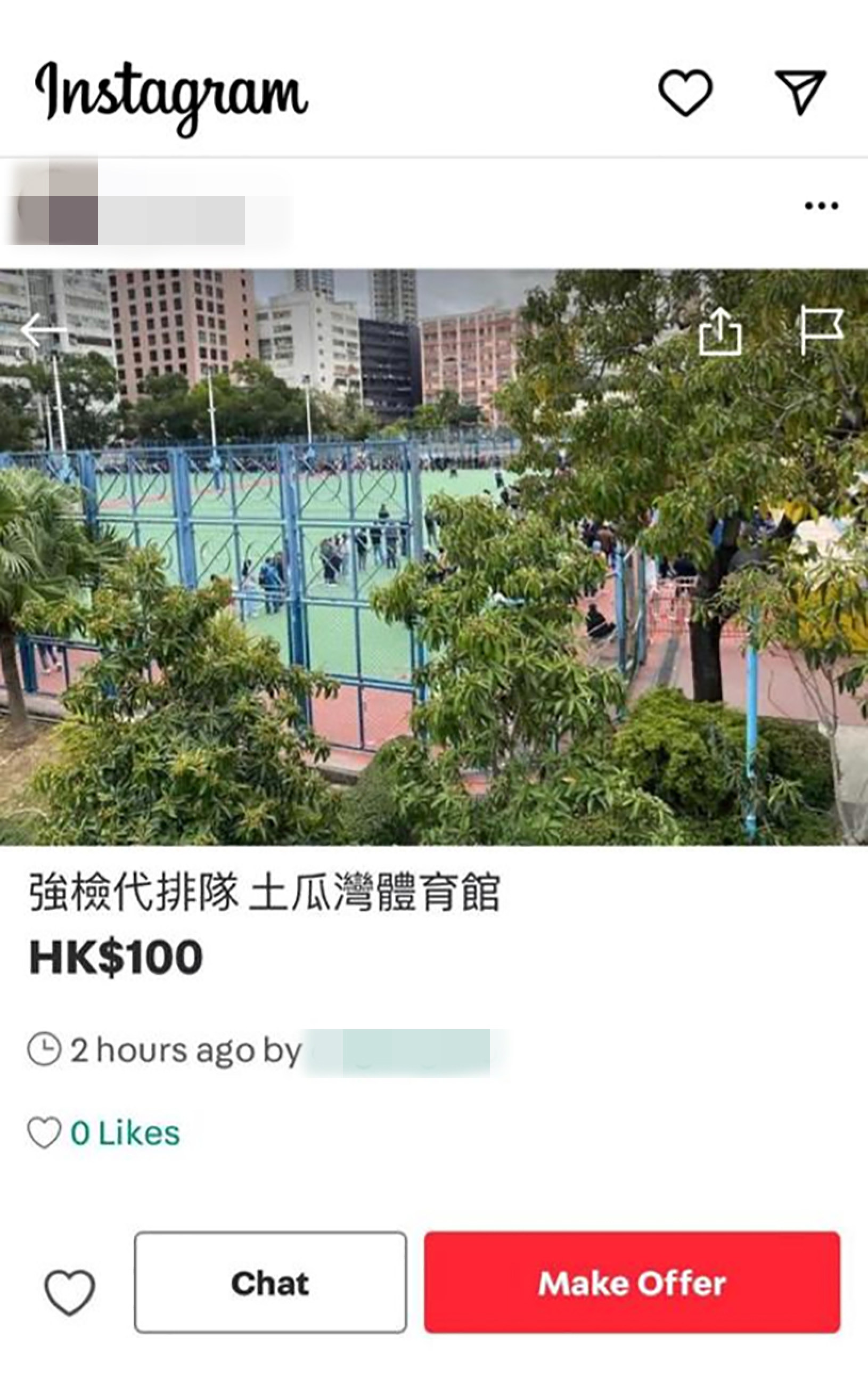
Coronavirus Hong Kong: long queues for testing a moneymaking opportunity for some; city logs 986 new cases
- Lines have grown as more people are hit with mandatory testing orders, with some Hongkongers selling reservations and offering their services as paid placeholders
- Meanwhile, a medical source has warned that the number of expected infections may not present an accurate accounting, as labs confirming test results have been overwhelmed
Long waits for Covid-19 screening have become a moneymaking opportunity for some, as more Hongkongers find themselves consigned to hours-long queues by compulsory testing orders amid an exponential surge in cases.
The city recorded 986 new infections on Thursday, though that figure may not reflect the actual pandemic situation, as the labs confirming test results have been overwhelmed, according to a medical source.
Residents in areas such as Sha Tin, Ma On Shan, Sham Shui Po and Yuen Long have spent hours queuing for tests over the past few days because of mandatory screening orders issued after sewage samples in their communities tested positive.
Some in other areas such as Discovery Bay have also complained about unclear instructions and the risk of Covid-19 infection at specimen collection stations while waiting in line. Rapid antigen kits around the city were also largely sold out.

The surge in testing has spurred some to sell queuing services online for anywhere from HK$90 to HK$200 (US$11.50 to US$26), as seen in some listings on online classifieds platform Carousell. One online entrepreneur, for instance, was offering to queue for others at To Kwa Wan Sports Centre for HK$100.
At least one operator has implemented novel measures to avoid lengthy queues, but that, too, was exploited by some for financial gain.
The medical lab Carelink Bioscience opened a testing station at the Cheung Sha Wan Sports Centre on Wednesday, and distributed chips assigning each patron a number so they could wait at home instead.
Patrons had been allowed to collect chips for others, such as family members, but Shuen Wing-ki, the company’s chief operations officer, said more oversight had to be introduced after she learned from employees that there were cases of people selling the chips.
“We have a new measure that if you are helping your elderly family members by taking an extra chip, you can show the other person’s ID or senior citizen card as proof,” she told a radio programme.
In a viral video online, frustrated residents who had queued for hours at a screening site are seen arguing with police after being told to return home because they will not get tested in time before closing.
Hong Kong confirms 1,161 Covid-19 cases and first deaths in roughly six months
The city’s leader and health officials have said the government will further boost its testing capacity to 300,000 a day by the end of this month, with a large-scale lab being set up in Ma On Shan with mainland Chinese help. Around 40 major testing stations will be set up near residential estates in various districts, but no concrete timetable has been given yet.
The Post understands that Chief Secretary John Lee Ka-chiu has had cross-departmental meetings on how to shorten queues, including by using chips at testing stations, mobilising more civil servants and volunteers to help, and setting up care teams to help those waiting in line.
To tackle the long queues, the government would put in place another 10 machines to distribute quota tabs for residents with compulsory testing orders, Undersecretary for Food and Health Dr Chui Tak-yi said on Thursday.
“The dispensing machines have received positive feedback from the public, using them is a viable option to reduce waiting time in queues,” he said.
“If we spot any irregularities or inappropriate behaviour, we will try to stop it and will review the situation upon receiving any information.”

A Food and Health Bureau representative said mobile testing stations at Tsuen Wan Park, Kwai Chung Sports Ground, Cheung Sha Wan Sports Centre and other districts had set up dispensing machines. Care teams would also help the elderly and others in need at many other stations.
The bureau would also consider implementing similar arrangements at more testing points, depending on the situation at different venues. Volunteer civil servants and staff members working for testing contractors will monitor the situation so people do not abuse the ticketing system.
A spokeswoman for Carousell said users were encouraged to report listings for virus test queuing services on the app, and a team would review them within 24 hours.
“While general queuing services are not prohibited in our community guidelines, Carousell does not condone the practice of benefiting from an escalating public health situation,” she said.
Professor Kwok Kin-on, an assistant professor at Chinese University’s school of public health, warned Hong Kong’s daily caseload could hit 5,000 in as little as a few days.
However, he added, cases could peak around the end of the month and begin to fall as long as residents complied with mandatory testing notices and vaccination rates rose.
Hong Kong’s daily caseload surpassed 1,000 for the first time on Wednesday, with 1,161 coronavirus infections confirmed, while the deaths of two chronically ill patients marked the city’s first Covid-19 fatalities in six months.

